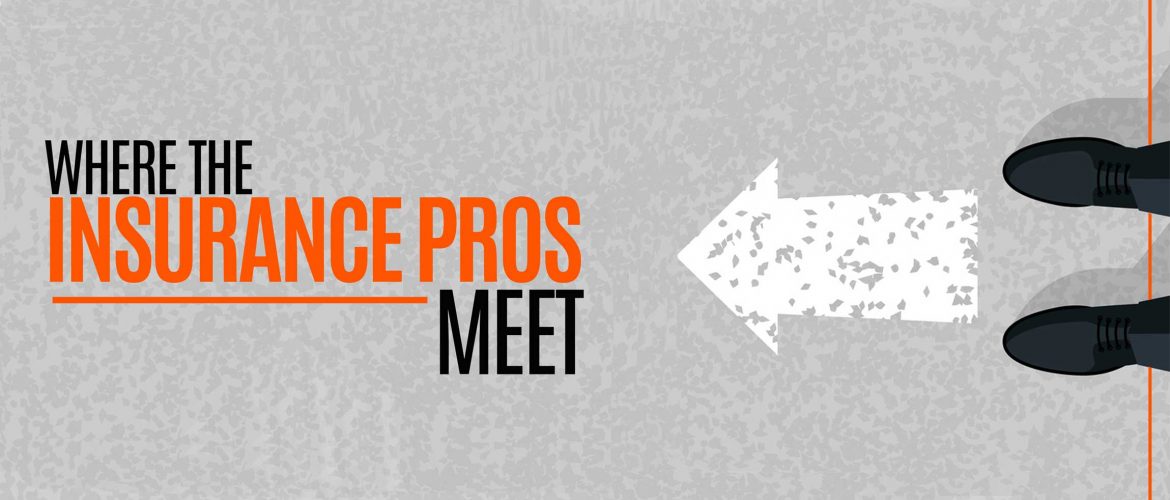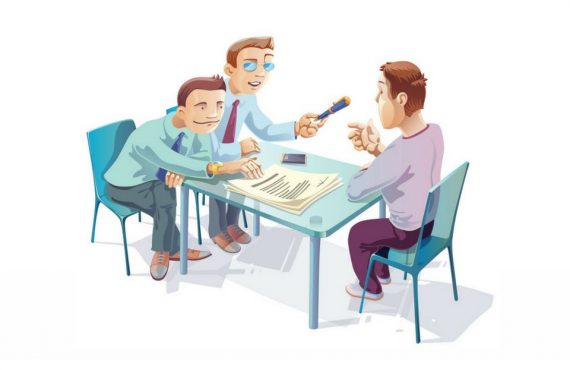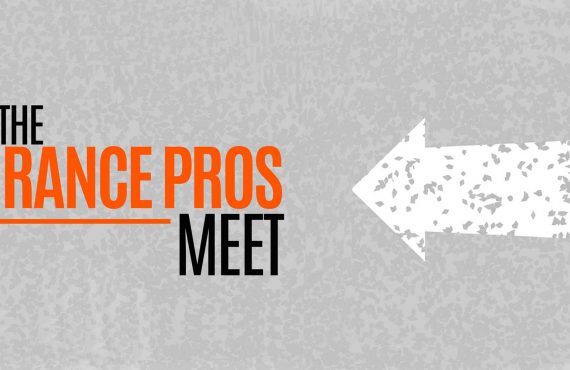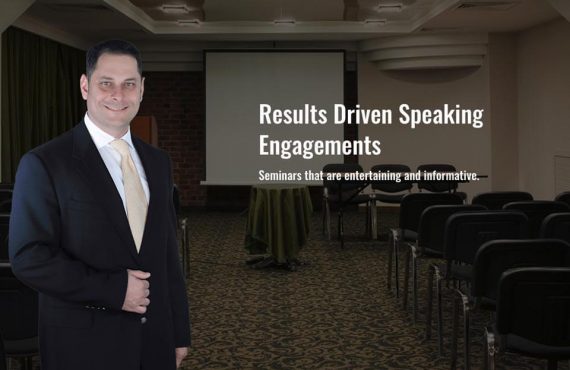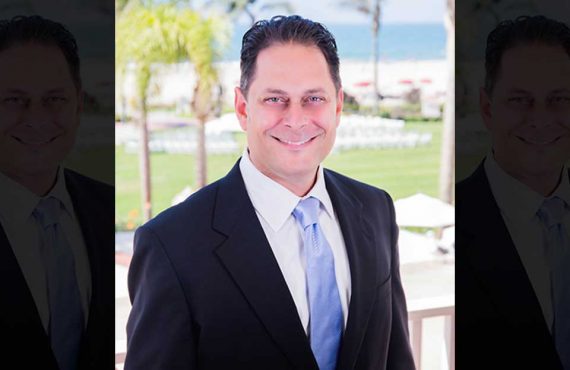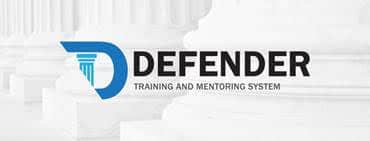Life Insurance expert Billy McDougall, takes us on a journey that can completely evolve your life insurance business. Learn why questions are the key to success. View more at MarkMiletello.com.
Note: “Where The Insurance Pros Meet” is an audio podcast and is meant for the ear. A transcript of the audio is provided for referencing a particular section or for you to follow along. Listen to the episode to get the most out of our show. We use both speech recognition software and human transcribers to create the transcripts so they may contain errors. If you’re going to quote us in print, please be sure to check the corresponding audio.
TRANSCRIPT
Speaker 1:
Where the Insurance Pros Meet, Episode Four.
Billy McDougall:
He said, “Your credibility, your professionalism, all of that is going to be defined not by the things that you say, not by the things that you prove in terms of your product knowledge, but by the quality of your question.”
Speaker 1:
Where the Insurance Pros Meet is a Podcast that brings the greatest talent in the world together. Managers, coaches, and producers. The very best experts the insurance and financial services industry has to offer. Get ready to change the way you do business to have your most successful year ever. Now, here’s Mark Miletello, a top 1% producer, manager, and your host of Where the Insurance Pros Meet.
Mark Miletello:
Welcome to the show. Thanks for joining us. Today is an exciting day. I think most of you are going to gravitate toward our guest that we have because he is an agent. He’s an agent who started from scratch. One of my first hires as I went into management 10 years ago. He started really from the medical sales industry and transitioned into the insurance industry. To be able to watch him from day one of his career has been a real treat. He’s led my agency. He’s been a leader in the company. I believe you’re going to love to hear from our guest, Billy McDougall.
Billy McDougall:
Hey, Mark. Thanks for having me.
Mark Miletello:
Well, I’m excited to be with you and a couple reasons why. One is you are an agent that I’ve watched come into this business from an outside industry. You’ve started from scratch. I’ve watched the progression of going and you learning different styles. You’ve learned from several people in the industry, and you’ve continued to evolve until now. You have one of the most dynamic and powerful life insurance discussions I believe I’ve ever seen. I’d like to think I played a part in helping you get there, but I’m excited to see the success you’re having. You’ve won back to back Agent of the Years, as well as you are a fireman and you risk your life right now in the California wildfires to protect us, to thank you for your service and welcome to the show.
Billy McDougall:
Thanks, Mark. Appreciate it. Yeah, I do want to extend a thank you to you. You laid the groundwork for me in this industry. You helped me get my peanut or meet me and just figure out what it meant to have discussions, meaningful discussions with clients. You’ve also helped me to reach out within the industry and find the very best and brightest and to try and [inaudible 00:02:46] my discussion even more, so thank you for everything you’ve provided for myself and for my family.
Mark Miletello:
Well, thank you. Of course, you’re my client, so thank you. Having you part of the test pilot group with this entirely new life discussion … Tell us first before we get into what you’re doing now, and using you as the Guinea pig and the test pilot of really transforming and evolving our life discussion. Now, what we’re basically launched on VanMark.life. Tell us a little bit about when you got started. Some of the struggles you’ve had, some of the successes you’ve had in discussing life insurance.
Billy McDougall:
Honestly, when I started, I didn’t really know much of anything about life insurance. I was joining what I thought was just a PNC company and then it was made very apparent that we were primarily a life insurance company, and that honestly kind of scared me a little bit because you must own car insurance by law. You must have home insurance to carry a mortgage, but you don’t have to have life insurance, and I was fearful of how it would be received by clients. I did, I guess I grew in my knowledge of it. Really embraced and just fall in love with the product, and the need that we instill in families. I’d say that I started by just trying to establish a level of professional knowledge with my clients. I think if you go back and listen to the types of discussions that I had with clients when I first started, they were effective relative to product knowledge.
Mark Miletello:
Right.
Billy McDougall:
They weren’t super effective relative to generating a discussion. They were still very much one-sided. I believe I probably did 90% of the talking and the client only did 10%, and hopefully, I was able to stay in their good graces long enough to let me finish through that discussion.
Mark Miletello:
Oh no, I agree. As a matter of fact, I think I still have that recording where you came into my office eight or nine years ago and delivered a mock, not presentation, of course. But at the time, I was your only liaison to the industry, so you were basically duplicating my process and maybe a couple others that I introduced you to. I think that’s kind of the way we’ve all been taught, or maybe we feel like even, regardless of the way we’ve been taught or not, it’s so much information we feel like we must get through within an hour, which ends up sometimes becoming two hours that we feel like we have to talk 90% of the time. Right?
Billy McDougall:
Correct. Yes. Honestly, part of that for me was when I first started, I thought that I had to legitimize myself in being a professional in the eyes of the client. I believe that that was done by showing them how extensive my product knowledge was.
Mark Miletello:
Right.
Billy McDougall:
That lends itself to a presentation-style discussion.
Mark Miletello:
Well, when you say “presentation-style discussion”, expand on that and tell us what that means to you.
Billy McDougall:
Well, I think I was very effective in getting across points. Whether or not those were received is a completely different aspect, in whether they’re received in the way that they want to be received. It’s kind of like, what do they say? You throw a spaghetti at the wall and see what sticks. That’s how those presentations were. Though they were effective, and I was able to sell life insurance with those, they were a lot of work. It was trying for myself to keep the clients engaged. I had to constantly battle and do work against their attention spans, relative to what I thought was hopefully important in their lives, instead of me really having a good discussion where they’re doing 90% of the talking. They’re engaging me, and we’re addressing things that are relevant to the first and foremost, relative to these products.
Mark Miletello:
When you say “presenting”, I think what I heard you say is you feel like when you call it a “presentation” or you’re presenting to the client, you feel like 90% of the time you’re talking because you’re trying to express a level of professionalism through your product knowledge, through the extensive details of the bells and whistles of the product, right?
Billy McDougall:
Yeah.
Mark Miletello:
Great analogy. You’re throwing spaghetti against the wall to see what sticks. What that means is you’re spewing this product knowledge so much that every now and then, something sticks. But you know what? You did a pretty darn good job of it. You came right in, won trips, won Agent of the Year, led my agency for three or four years in a row. What was so bad about it if it works?
Billy McDougall:
It wasn’t so bad. In fact, it was tremendously effective. But it made it very hard for me to consider a change. In fact, there are national speakers that I had heard multiple times, multiple years in a row before I made a commitment to do something different. I can’t even honestly tell you what triggered that desire to make a change, but I finally did. I took a leap of faith and I completely rearranged my … The presentation is gone. It’s not a presentation at all. Everything now is a discussion with the client, where I’d say they’re doing at least 50% of the talking. On a good day, much, much more. It’s much more engaging for them. It’s much more specific for what they care about, and it’s much more effective in terms of making sure you have a good product then because ethically then for me, ultimately, I only want what’s best for the client, and their opinion is the one that matters. If I’m giving them a presentation, how am I meeting their needs? I’ll tell you, I’ve had just so much fun in changing this into a true discussion, helping them organize their thoughts around important concepts like life insurance, financial planning, based on helping them by leading them through a sequence of questions that are relevant to those things to understand what matters to them.
Mark Miletello:
Well, I heard you say something in there. A strange word to our industry in the form of meeting with a client, but you said you have fun with clients. I remember when you and I were on the cuff, and it’s okay to say it. You and I were together, following Van Miller, and Van Miller and I, of course, have developed VanMark.life, which you were instrumental in helping us. At this point, I don’t know who comes up with what. I’m sure it all stems back from Van, and Van says it stems even further back to the mentors in his. Yes, whether it’s Gary Kinder, or Tom Hegna, or Brian McKnight, or Van Miller, or all those things, I do recall, and it’s been about two years for myself, so I’m trying to put the timeline together. But you and I decided at some point that we had to start with the first step of calling our new, evolved presentation, if you will, a life insurance discussion. I think that was the first step of reminding us of, number one, not to talk so much. Right? Not to just continually beat them up with bells and whistles and product knowledge. At some point, we … I still let it slip every now and then, but I’ve conditioned myself to even call the training platform and its own lifeinsurancediscussion.com, that that’s the first step I think, Billy, that you and I walked through was to start reshaping how we talk to clients by even what we call what we’re doing. Then you said, “having fun in a meeting”. How do you have fun at a meeting? I mean, I think we all think it’s a little bit fun what we do, especially when we win and we make sales and have success. But I think you’re talking about a different kind of fun. Right?
Billy McDougall:
Always at some level in the meeting, you have the sensation that you’re helping lead them down a road, and I think that the client has that same sensation. Van Miller is just fantastic and been listening to him speak over multiple years now, multiple occasions. One of the things that he said, and this goes back to where I was trying to establish, initially when I was new in the industry, my credibility, he said, “Your credibility, your professionalism, all of that is going to be defined not by the things that you say, not by the things that you prove in terms of your product knowledge, but by the quality of your questions.” I just thought that was just the oddest thing to hear, and I wrote it down multiple times from multiple speeches that he’s given on national podiums or regional podiums. Finally, I internalized that. It’s been incredible, the things that he said. I literally just last week had someone who said, “You’re the most knowledgeable insurance and financial advisor I have ever met with, and I’m 51 years old and I’ve been dealing with people my whole life. For the first time, I really have a sense of understanding and comfort in what I’m trying to accomplish.” That’s because I had him do all the talking. Everything was questioned. The thought process is we all want to be good at insurance and financial planning, as clients. As clients, we want to be good at that. We want to do it well. There’s nothing in there that is exceptionally difficult. Everything is very much common sense, but people don’t have organized thoughts around those considerations, so they can conclude, so the types of questions we ask help them organize their thoughts around insurance and financial planning. When you do that, it becomes a lot of fun because it’s truly a fun, interesting conversation, give and take, instead of, “Let me control this time so I can have you here, understand, and value what I’m trying to share.” It truly has just been interesting conversations, and you have to be willing to put yourself out for that. Once I finally did, I was just like kicking myself, going, “Oh my gosh. I should have done this years ago. I should have trusted Van in the very beginning because it has absolutely changed the way my clients view me. It has changed my level of enjoyment and excitement in terms of what I’m doing, and it absolutely changed consistency, and satisfaction, referrals.” Across the board, it’s just opened the floodgates in terms of changing my business.
Mark Miletello:
I talked to Van, and as of the recording of this show, as of today, I just launched the lifeinsurancediscussion.com training platform that allows the agent to walk through that same process that you and I have walked through in an organized fashion. It’s just funny that you haven’t even seen the finished product, but you know that what it took you and me… You’re right. You and I heard Van say it. We went to four different speeches where we’ve heard him talk. We had the same set of notes. I even told Van this last week. I said, “Van, it’s hard when something works for someone, and whether you’re selling five life apps a year or a hundred, whether you’re selling $5,000 in premium or $50,000 as a multiple-line agent, or $250,000 or more, you feel like you have a process that somehow works, that gets the job done.” I remember you saying earlier, you had to decide to throw all that out of the window. It’s not that we forget because we still have those things, those stories and those discussions that we can pull out, such as stories of the farmer and the seed and things like that. But I think what took you and me two years to get to was letting go of the way we do things and say, “Okay … ” The funny thing, Billy, you and I have challenged each other to have a complete interview discussion with a client, and try to ask questions the entire time. Now, I think it’s virtually impossible if you were to record yourself to not have a statement in that entire 45-minute or hour-long meeting. You’re going to have statements.
Billy McDougall:
Of course.
Mark Miletello:
But I think it’s a fun challenge for each other to say, “Hey Billy, let’s try to go through an entire life insurance discussion with just asking questions.” I’ve tried to do that. It’s impossible, but it’s fun to try.
Billy McDougall:
Yeah, and Van has some interesting nuances that he uses in his discussion. When he needs to address a point to drive home a concept for them to consider and decide how they value that concept, he’ll ask them. He’ll say, “Do you mind if I share a story with you?” Now, you’re engaging them instead of just launching into, “Well, I’ve got a story for you about this.” Or, “Do you mind if I share with you this aspect or another?” Those little nuances help to keep that sensation, that feeling of it being very conversational, even in points where you need to get them a little bit of detail so that they can make a better determination of their opinion.
Mark Miletello:
Billy, you and I have kind of started this path together a few years ago, like I mentioned. At times, we’ve talked about it, we’ve shared notes. I put together a PowerPoint of my thoughts and even recorded voice-over over each slide. At the same time, I give you credit for doing the final piece of the puzzle that needed to be done for me as an agent. Not talking about management. I’m just saying as an agent in the business, as peers I guess I should say, what I credit you is getting it on one page. That’s what I’ve always told every educational department I’ve worked with, and process that I’ve been. You must get it on one page for agents to wrap their brain. I’m giving you the credit on the show for being the guy who put the final pieces of the puzzle and got this life insurance discussion on one page. Can you tell us the importance of that, how you did it, and tell us about that one page?
Billy McDougall:
Absolutely. Well, first, none of that is original content. None of that is an original thought. All of that is stuff that I’ve garnered basically standing on the shoulders of giants. People like Van Miller, people like yourself, other people in the industry, Tom Hegna, using their concepts and their ideas. I said, “Okay, there’s such a great amount of knowledge there, and I’m just not that smart of a guy. What I really need to do is I need to have a way, on a consistent basis, whether I’m on and having good discussions with clients, or whether I’m a little flat and I’m not good. On a consistent basis, something that can ground me and help me stay on track in terms of not a presentation, but in terms of appropriate ideas to bring up questions about, to discuss.” What I did is I took basically some of the main components that I feel like I identify the most, taxes, volatility, fees, inflation, leverage, and I kind of built out, I don’t know if you want to call it an outline or an agenda. It’s just something that’s good for me so that I can track along with the client and I know where I’m going next, and we address those things in that way. I’m able to be consistent in my discussions. The discussions go whichever way the client wants them to go. But I’m sure we’ve all been in meetings where a client brings up something, you’re off on a tangent, and you never end up back to addressing some of these issues and concerns that really the client needs to consider for them to have organized thoughts and move forward in the insurance or the financial world.
Mark Miletello:
Yes, and having an agenda … Really, I’ve gotten away later in my career from using or having an agenda. You’ve been one of the few agents that I’ve worked with that has always used an agenda, and you make no excuse. In fact, you make it a great thing. You tell the client, “I have an agenda, so we don’t get off track. We’re going to go through this, and I’m going to actually take notes and give you a copy of this.” That’s one thing that I’ve just been amazed at the way that you do is that the notes that you have from your meetings are by far the best that I’ve ever seen. It’s better than my own. What I like about it, and back in the early days when you needed my help, and you would send me that, it would just blow me away. But what it does is it helps you keep a record of the client’s goals, dreams, wishes, needs, and deliver that back to the client and present that back to the client by saying, “This is what you told me, and this is how we’re going to fix it,” which I think is a great idea that I’ve seen very few people, if any, do in a life insurance discussion or sale. But putting it on one page, then an agent can take all this world of information that we’ve been gathering for two years, and thinking that it’s just so much. It’s drinking from a fire hose, using a fireman aspect there. That’s what I felt, and I’ve led this industry as a life insurance agent, and to me, it was like drinking from a fire hose. To me, having it on one page helps you wrap your brain around, “Hey, I can do this. I can learn this. Not only that, I can deliver this.” You’ve told us a little bit about where you’ve come from. You’ve discussed what a presentation means to you, and you’ve really defined it since you’ve been talking. But point blank, Billy, now I’ll ask you the question. What is a life insurance discussion, and how can an agent stop everything that they’re doing? What were some of the recommendations you would make about having a discussion? Tell us what a discussion means to you.
Billy McDougall:
That’s a tough question to answer, but I’ll tell you how I formulated my process for asking good, relevant questions. First, I had to identify the areas that made sense to discuss, and we already kind of went into some of those things. There can be many more areas, and you can add that to your agenda. “What other items do you have on the table, Mr. Client or Mrs. Client, that you would like addressed here?”
Mark Miletello:
Right.
Billy McDougall:
Once I identified those, it was really a test. I sat down with multiple people, and I went through the process and they’d stop me. They say, “No, you’re telling. You’re not asking.” I’d have to step back and think, “Okay, I don’t want to lead a client in a direction. That’s unethical. What I want to do is discuss a topic.” You can drown them in some stuff briefly about it, but get their opinions on it. What that discussion looked like for me? Don’t get me wrong, I think that Van does have the finest questions in the industry. His CDs are on repeat in my car. I’ve listened to them for hundreds of hours. I happen to have long commutes, so it allows me that time. That stuff just comes out in the discussion. But it was coming out just kind of randomly. I wasn’t using it very effectively. The reason that I went to that one-page outline or agenda was to help make sure that I captured those specific things. Van impressed upon us a handful of things. He said, “You should be silent in the discussion. It really should be the client who does almost all the talking. Your discussions should be short. They should be 45 minutes or less.” That is just scary and painful to hear. That includes taking applications. That’s Van’s recommendation.
Mark Miletello:
Yeah.
Billy McDougall:
That’s hard for me. I’m a pretty analytical person, and that’s been a real big thing for me to do. Van says, “If there’s an analytical bone in your body, you need to get rid of it right now because you can’t be that way.” He speaks well. He has this concept of, “You know, it’s your responsibility. You are the financial professional. It’s your responsibility to know every little minute detail of how your product works, the implications to your clients. All that stuff is you. Now, your responsibility in helping a client understand what they need is not necessarily explaining to them every specific detail about how that product works, but instead, what that product does for them. That’s dictated by the things they deem to be important.” That was a shift for me, being an analytical person. Instead of digging so deeply into individual things, talking more about broader concepts. I find that 95% of my discussion with clients is broad, on large topics, broad in scope, and maybe 5% of the time we may look at an illustration.
Mark Miletello:
Yeah.
Billy McDougall:
It has probably flipped from what it was when I started in the industry. You’re so focused on solutions, and you hear that in the industry. Right? “Don’t be solution-focused. Work on the problem. What does the client want?” But I just didn’t know how to bridge that gap, and Van’s information, the way that he has interviews with clients has been super effective in helping me do that. I just had to organize a way for me to be able to have that discussion consistently with each client.
Mark Miletello:
Yeah, and that’s why Van and I came together is that, again, two years of following him and listening to the CDs, hundreds of hours, trying to figure out a way to have a discussion and ask questions, versus … That’s a tough thing to do, and it’s a hard process. It’s tough to swallow, but it can be done. I think it’s hard to continue on and giving the listener out there exactly how to do it, and that’s why I told Van, I said, “We need to come together, form VanMark.life, and we need to show people a process where they can learn what took us two years to learn, they can learn in two weeks. They can learn in two months.” Having it on a training platform so that they can walk through what you and I walked through every step of the way, but much faster, and get to that realization that how do you not talk about the product when that’s what you’re there to offer? The bottom line is, you’re talking more, like you said, of big picture items. You’re talking strategies and you’re talking philosophies. Yeah, it’s very effective. It’s a dynamic. It is fun. You walk out of there feeling like you really are on the side of the client, instead of presenting a product. Billy, I appreciate your time. Looking back over your career and the successes you’ve had, can you pinpoint one area where you would tell a new agent, “Don’t make this mistake.” Did you have a fumble at some point along the way that you would guide a new agent or maybe a veteran agent not to make the same mistake?
Billy McDougall:
I think that we’ve all fumbled in our careers. I certainly have. I like to try and be very honest about those so that I have them as an opportunity to learn. Have a level of humility that allows you to be open to input from everyone. Someone who’s a lesser agent with less experience can give you valuable input that you can implement to be successful.
I’d say the biggest thing, the biggest mistake I have made is the unwillingness to change when I feel like, “Hey something’s working. I’ve got a process. It’s going to be hard for me to consider doing something else.” But I certainly wasn’t going to do any better, and I wasn’t going to help my clients any better by continuing to do what I was doing. There is only so much time in a day. The top producers have better products, business. More commissions on the book, more premiums on the book, more people helped. They have the same amount of time in the day that we do, so listening to Van a hundred times say, “You need to stop doing what you’re doing and try something different to make yourself better, and to be a better resource for your client.” Stepping away and doing that is a big leap of faith, and I wish I had done it sooner because you’re fearful of change. But that change makes my career so much more fun, so much more rewarding.
Mark Miletello:
Well, I love those late-night calls where you say, “Mark, I wrote a 2,000-a-month permanent life insurance plan.” “I wrote a 300-a-month term life app, and the client begged me for it.” You’re having much more fun, and I think I get it, and I try to be that way. I try to take your advice. I want to always continue learning, but sometimes you think you know enough and you stop learning. I think that’s your fumble is you need to be coachable, right? Even at our stage, whether you’re a new agent or a veteran agent or in between, you need to be able to look around, evolve what you do. You must constantly evolve, for sure.
Billy McDougall:
Absolutely.
Mark Miletello:
Yeah, so let me ask you this. You’ve been in the industry for 10 years. You’ve seen a lot of change, and I’ll put you on the spot. In this show, we like to get a professional prediction. What do you see 10 years down the road, and let’s kind of keep the topic in life insurance? I know you’re a multiple-line agent, and that makes you even more phenomenal for life premium that you collect. But looking down the road, what is your professional opinion and advice to the agent? What does the industry look like, and how do we fit in?
Billy McDougall:
I don’t know the answer to that, of course. Nobody does, but my best guess would be, at a certain point, the government’s going to take some of these tools away from us. These are tools that we want people to get an opportunity to have organized thought around those things, consider them, determine if they want them, and have access to them. There is some level of urgency, and it’s not on the client. It’s on us. It’s on us as agents. We need to be as effective as we can in having quality discussions. Not pushing products, not selling products, but reaching out to as many people and giving them information so that they can make good decisions for their families. It’s okay if they thoughtfully reject ideas, but it’s not okay if they’re never given the opportunity to do that. There are only a few times in a person’s life where they’re going to talk to a professional like you. Scarcity, there’s going to be some of that moving forward in the next 10 years.
Mark Miletello:
Well said. Well said. You’re right. It’s a fun question. I like to hear what professionals in the industry think about our future. It’s always optimistic that we’re going to be needed. I love what you say, that we’re going to be even more needed to have a better discussion and … You’re right. Giving the client just the opportunity to have the discussion is what most agents aren’t giving their clients.I want to tell you to thank you for joining us on Where the Insurance Pros meet. You are a consummate pro. I like to think of you like my big brother, and of course, I’m older than you so I can’t say that. But I like to think of you in the way that I think of him that every time I get around him, I learn something. Billy, if I can say one thing about you, that’s what I would say is I learned something. Thanks for now becoming a mentor of mine.
Billy McDougall:
Hey, same with you, Mark. I appreciate you very much. Thank you, sir.
Mark Miletello:
Thank you.
